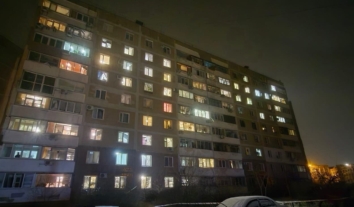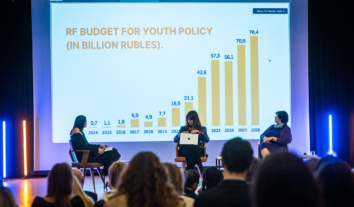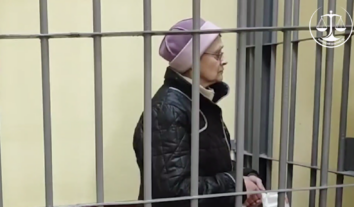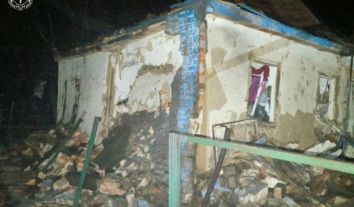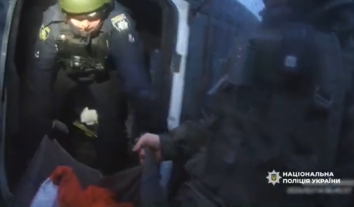Parliament voted in favor of changes to the CPC regarding absentia conviction
In first reading Verkhovna Rada endorsed the amendments to the Criminal Procedural Code of Ukraine regarding absentia conviction.
As reported by the Ukrayinska Pravda (Ukrainian Truth), 233 deputies voted for amendments.
Bill №5610 offers not to include the period for familiarization with the materials of the pre-trial investigation by the parties of criminal proceedings, in accordance with Article 290 of the same Code, in the total period of pre-trial investigation.
General Prosecutor Yuriy Lutsenko spoke before the deputies in the Parliament. He said that if this bill is adopted, then 119 criminal proceedings will be ready for trial.
“Yanukovich, Zakharchenko and his entire party, including Shulyak, Ratushniak, Yakimenko, Azarov and others are waiting for your decision. Putin’s advisor Glazyev, Russian Minister of Defense Shoygu, 12 generals and officers from among the high command of the Russian army and others are also waiting for your decision”, – said Lutsenko.
“The adoption of this law will allow, on March 10, to start the trial of Yanukovych in the case of high treason”, – he also added.
Special-purpose Committee recommended to adopt the bill as a basis in order to finalize it in two weeks.
In turn, People’s Deputy Oleh Lyashko said that this law will allow “Poroshenko to usurp power”, therefore, his faction will not support it.
Political Party People’s Front said that they decided to support the law in the first reading, to further refine the disadvantages.
On February 20, President Petro Poroshenko urged the deputies to support the amendments to the law on absentia conviction to take the charges against Viktor Yanukovych to the court.
 “Our united and common position is an appeal to MPs. We cannot wait for months, since on April 15 this law expires and they will elude the responsibility again. This is our firm and urgent appeal: during this week to vote for the law that allows us to take the case of Yanukovych to the court”, – said the President during the meeting with families of Heroes of Nebesna Sotnya (Heavenly Hundred Heroes).
“Our united and common position is an appeal to MPs. We cannot wait for months, since on April 15 this law expires and they will elude the responsibility again. This is our firm and urgent appeal: during this week to vote for the law that allows us to take the case of Yanukovych to the court”, – said the President during the meeting with families of Heroes of Nebesna Sotnya (Heavenly Hundred Heroes).
Earlier, Oleksandr Banchuk, the Expert of the Centre for Policy and Legal Reform, said that this bill will deprive Ukrainians of the right to and personal freedom and returns the repressive provisions of the old Criminal Procedural Code of 1960.
Amendments to the Article 135 of the CPC propose that the serving the summons was made through official publications: “Holos Ukrayiny” (Voice of Ukraine), “Uryadovy Kuryer” (Governmental Courier) and on the official web-site of body, which is conducting pre-trial investigation. Consequently, the person is considered to have acquainted with the content of the summons.
“Until now, a fundamental principle functioned in criminal proceedings that person cannot be convicted without his presence and the person must be aware of the suspicion, indictment and the fact of case being transferred to the court. Absentia conviction is exception of this rule and conviction of an absent person is only possible in cases of serious crime”, – said Oleksandr Banchuk.
Earlier, Oleksandra Yanovska, the judge of the European Court of Human Rights, warned that the suspect should clearly state about his waiver of right to be present during the pre-trial investigation and the trial itself. Only after this the procedure of absentia conviction can be started.
Earlier, Wayne Jordash, the Queen’s Counsel and the Managing Partner of Global Rights Compliance (GRC), also warned on the danger of absentia conviction. He noted that in the absence of vigilance, procedural fairness and legitimacy it is very possible to cast doubt on the verdict, which was decided in conditions of absentia conviction.
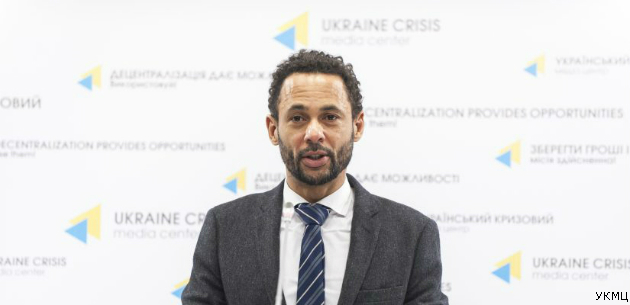
Wayne Jordash indicated at the number of cases in the European Court of Human Rights (ECHR). According to them, the prosecution must establish that the accused clearly decided to avoid the trial.
“It at least provides an obligation for prosecution to demonstrate that the defendant clearly knows (not only may know) about the trial. It is not enough for the prosecution to show that the information on the trial was made public in mass media outlets or otherwise, whereby the accused can get acquainted with it”, – explained Wayne Jordash.
If absentia conviction will become a rule, then a number of fabricated cases will significantly increase. After all, millions of Ukrainians, for objective or subjective reasons, are not resident in a place of their official registration, is convinced Oleksandr Banchuk.
“The convictions will be forged in thousands!”, – emphasized the expert.
He explained that, in the case of adoption of the law, every citizen of Ukraine, stateless person or a foreigner, who is residing on the territory of Ukraine, will have to daily check the information in the mass media so that he won’t be sentenced in absentia.
In addition, because of this law suspects, whose guilt has not been proved, will be kept in SIZOs (pre-trial detention centre) for longer periods of time, often in inhumane conditions.
Expert predicts that the law will allow investigators and prosecutors, rather than to quickly and efficiently investigate, to keep people in the indefinite status of suspects for several years.
“I wonder whether the business associations and business ombudsmen had an opportunity to get acquainted with this initiative? Such proposals of parliamentarians put an end to all the governmental initiatives on increasing investment attractiveness of the state. After all, tax police and prosecutors and the Security Service of Ukraine will be able to investigate cases against enterprisers even longer”, – said Banchuk.
“It should be noted that the bill №5610 also completely denies several strategic documents of the state, in particular, the Strategy of reforming judicial system, court proceedings and related legal institutions in 2015-2020, the National Strategy in the field human rights and action plans for their implementation”, – commented the experts of the Reanimation Package of Reforms (RPR).
Experts of the RPR expressed their willingness to prepare balanced legislative changes that would guarantee the protection of constitutional rights of citizens and would comply with international standards.

